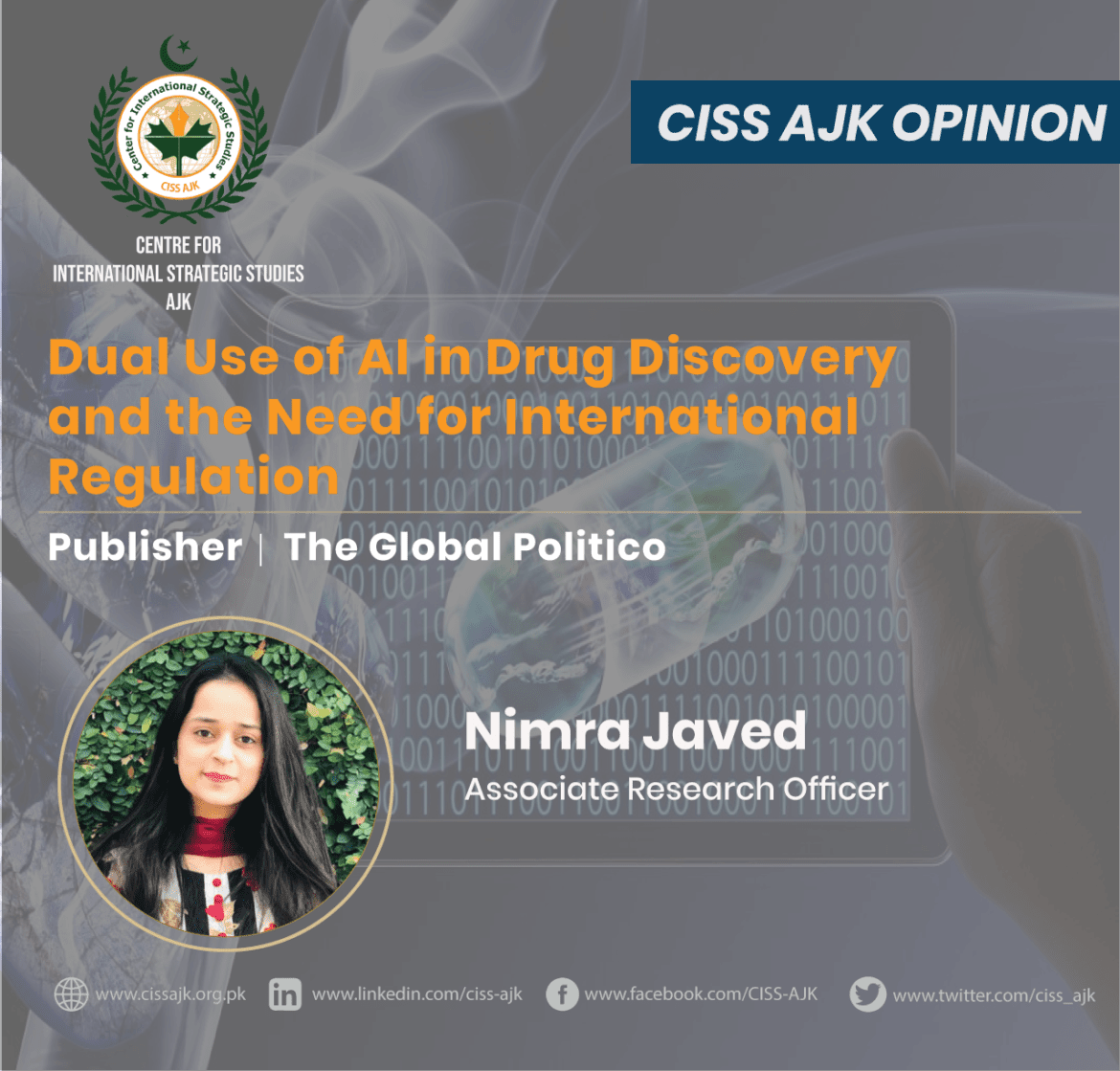715

The emergence of Artificial Intelligence (AI) has brought forth great opportunities and challenges, particularly in the field of drug discovery. As showcased in the Netflix documentary “Unknown: Robots,” AI has the potential to revolutionize medical science by rapidly identifying new drug molecules. However, it also raises concerns regarding the dual use of AI, where the same technology could be exploited to create deadly weapons. This paper explores the implications of AI in drug discovery, the potential risks associated with dual use, and the necessity for an international regulatory framework to mitigate these risks effectively.
The traditional drug discovery process is both arduous and resource-intensive, often spanning a decade and costing billions of dollars. However, with the integration of AI and machine learning, this process can be significantly expedited. AI algorithms can predict drug behaviors accurately and eliminate nonviable compounds during the early trial phases, potentially saving both time and resources.
While AI holds promise in advancing medical science, the dual use of AI technology poses an alarming risk. As demonstrated in the documentary, a seemingly minor alteration in the AI algorithm led to the discovery of molecules capable of producing deadly weapons, surpassing even the potency of the nerve agent VX. This highlights the potential for malicious actors, including non-state and state actors, to exploit AI-generated molecules for harmful purposes, endangering thousands of lives.
To address the challenges posed by AI’s dual use potential, fostering international collaboration and implementing comprehensive regulatory measures is imperative. Drawing parallels with the Convention on the Ban of Chemical Weapons (CWC), an international framework is needed to ensure responsible AI usage in drug discovery and prevent its malicious application for weaponry.
Government regulatory bodies and organizations must work together to establish industry standards, regulations, and ethical guidelines for AI usage in drug discovery. This framework should address potential risks and promote transparent practices to safeguard public safety.
Cooperation among nations is vital to harmonize AI regulations and share information on AI-driven drug discovery advancements and potential risks. Information sharing will enable better monitoring and prevention of AI misuse across borders.
Similar to the CWC, the regulatory framework must strike a balance between the peaceful applications of AI in drug discovery and the prevention of its misuse for deadly purposes. By incorporating measures to identify and address dual-use AI applications, the international community can ensure global peace and security.
AI has the potential to revolutionize drug discovery, offering hope for advancements in medical science. However, the dual use potential of AI presents significant risks to global security if not properly regulated. By implementing an international regulatory framework, encompassing both AI and chemical safety, the world can harness the benefits of AI in drug discovery while preventing its misuse for nefarious purposes. Through collaboration, ethical guidelines, and information sharing, the international community can work collectively to strike a balance between innovation and safety, ensuring a secure and prosperous future for all.
Nimra Javed is an MPhil Scholar of Strategic Studies at National Defence University, Islamabad & is currently working on Nuclear Politics & Disarmament, Emerging Technologies and New Trends in Warfare.
Writer can be reached at: @NimrahJaved_



